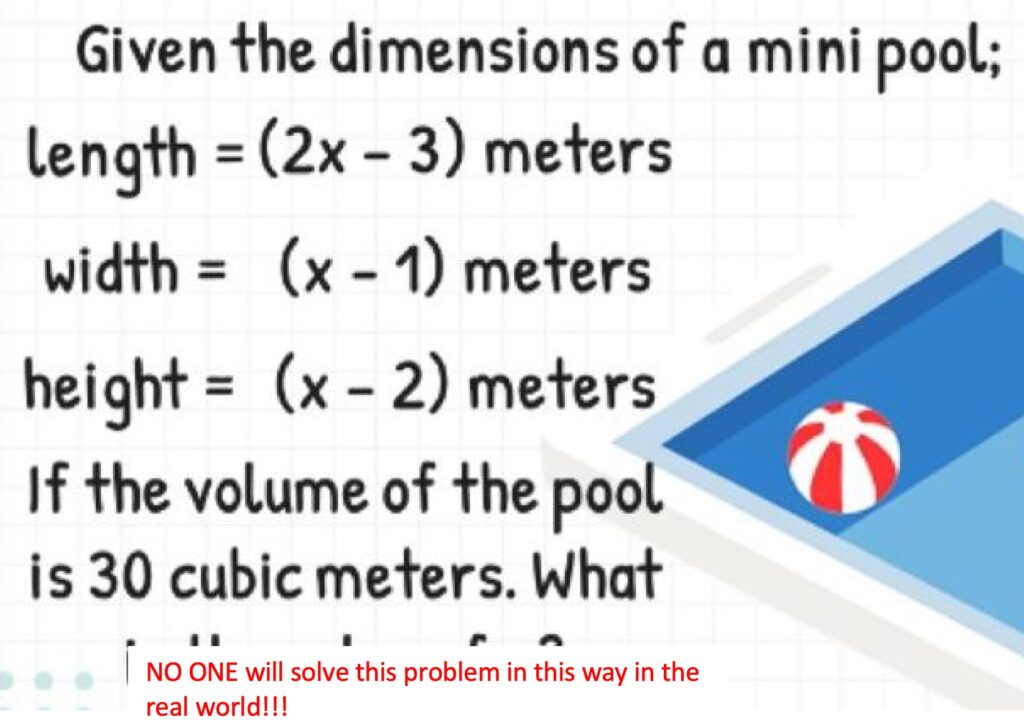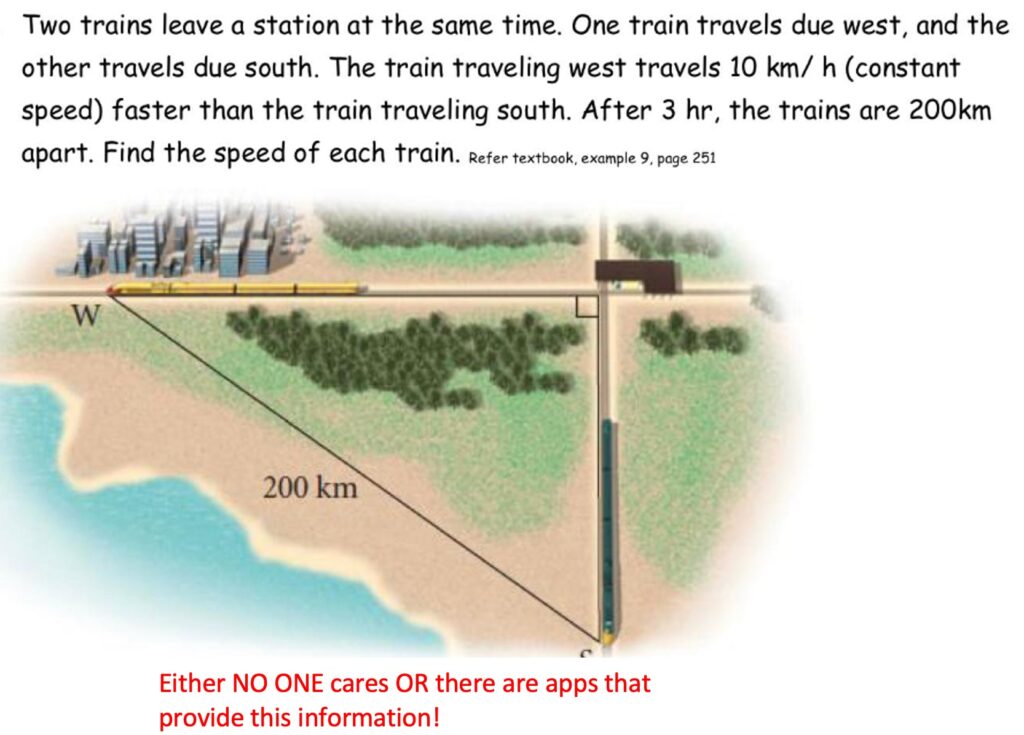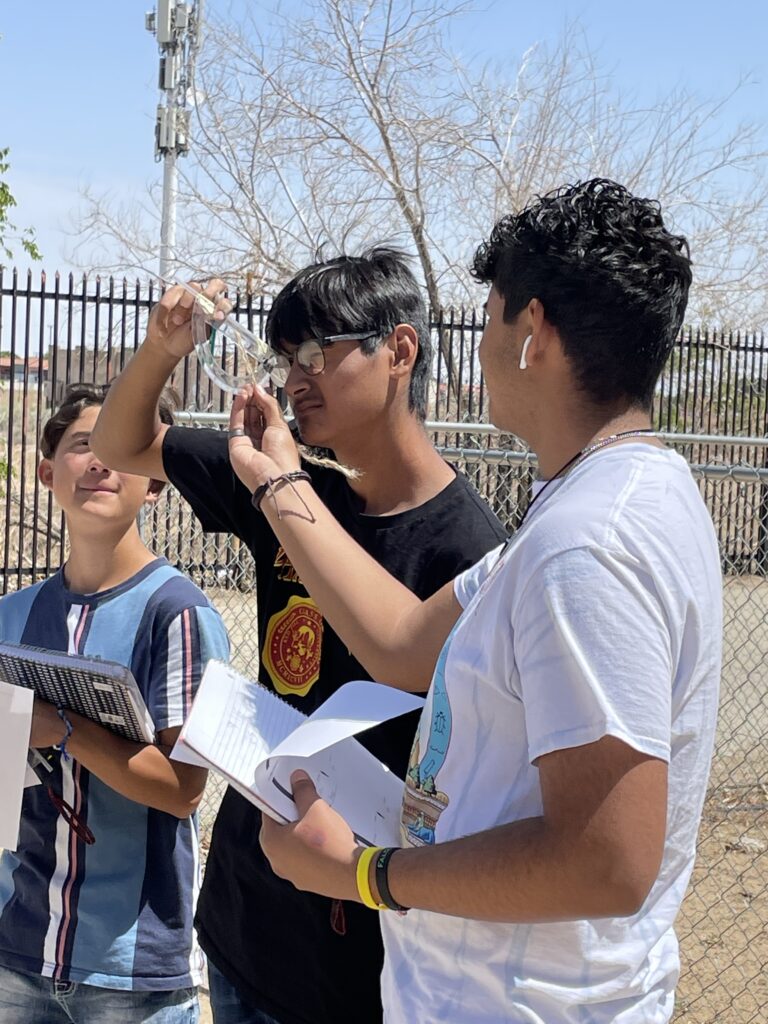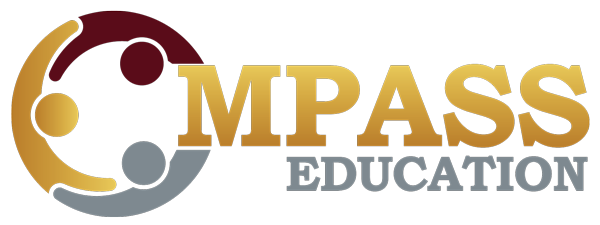If you have been in a training with me, then you have probably heard my soap box speech about how textbook companies have corrupted the authentic application of math. They do this by publishing story problems that requires complex math algorithms, when in reality no person would ever solve their real-world problem in that manner. I am beyond frustrated with the lack of improvement or revolution within curriculum development. I feel passionate about the desperate need for every educator to demand true authentic examples of how math is used in everyday life or within a specific career.


You may be asking, what is the danger? Follow me here, it is socially accepted to admit that you are “not a math person” which provides a strong foundation for the statement that we do not really need math to be successful in our adult lives. Completing your high school math courses is more of a rite of passage or something to get through but no one expects you to actually use it in your future. Given that this is the general consensus within with U.S. it is further strengthened when story problems within a textbook is lacking authenticity and the solution pathway is so convoluted that no one would ever go about resolving the problem in real life in the manner that it is posed in the textbook. The textbook unknowingly is providing significant evidence to support the idea that math is not really used in everyday decisions.
What if…what if every story problem in every math book (elementary through university level courses) reflected an authentic purpose as well as solution pathway that would be recommended to resolve the problem in real life??? Mind blown! Now students would no longer need to ask, “where am I ever going to use this?” The answer to that question is now included within the teaching and practice of each skill being taught. Additionally, teachers are not always well informed of how each independent skill is authentically used, they need the experts in the math field (hopefully those who create teaching resources such as textbooks) to share a variety of ways in which each skill is used. It is totally acceptable to say that this unique skill is mostly used in these fields and is now mostly completed through programs or apps. Let’s see how they work, and how to interpret the outcomes rather than the lengthy process of following the algorithm.
Furthermore, if a skill no longer has an authentic real-world application, then STOP TEACHING IT! Seriously, I am fully supporting the idea that math curriculum must change to reflect the demands of this and more importantly the next century rather than paying homage to “how things used to be done”. Yes, I admit that I am of the age that I had to look up the answers to trig functions, radicals, logarithms, and other common calculations in tables at the back of my textbook rather than having technology that can effortlessly complete those calculations. We did not have any other option…but today, we have apps that can solve equations by simply taking a picture. Educators need to embrace the new technology and begin teaching what the technology cannot do! The technology can factor and solve a polynomial equation, it cannot interpret the solution!

How does the last paragraph connect to corrupting the idea of math being used in the real-world? In my opinion it’s simply the next chapter exacerbating the original issue. If students cannot use technology that is readily available and instead must struggle through an algorithm that is antiquated, this adds more evidence to the statement that math is not used in the real world. The real world uses technology!
In closing, I strongly suggest that every educator demand authentic examples of math skills being used in accurate applications to real-world situations and decisions. If you continue to buy textbooks that have unauthentic story problems, then you become part of the problem and textbook companies will continue to gain wealth while sending the hidden message that math is not really needed in everyday life. #start the math revolution!
